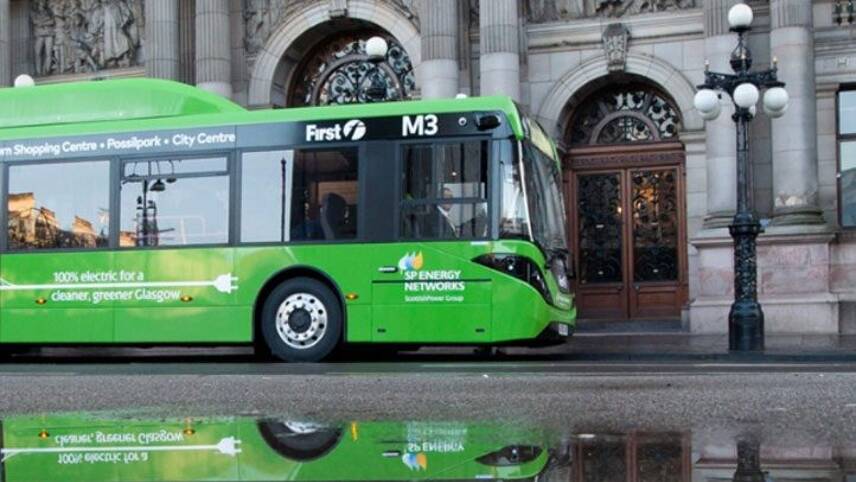Register for free and continue reading
Join our growing army of changemakers and get unlimited access to our premium content

Image: First Bus
The project will be completed in phases over the next 18 months and, once both phases are finished, the depot will be able to support up to 300 electric buses at one time.
Phase One will be completed by September this year. Consisting of 11 new rapid charging units, the phase will support the introduction of 22 new fully electric buses ahead of COP26 in November. These single-decker buses are being supplied by BYD and Alexander Dennis.
Then, under Phase Two, 69 more dual-headed charging units will be installed. With the Phase One chargers and infrastructure already onsite, the total number of chargers will stand at 162. All new chargers are 150kW and are being supplied by Heliox Group.
Both phases are set to be completed by the end of 2022. By spring 2023, First Bus is aiming to host 148 new fully electric buses from the Caledonia depot – the 22 due ahead of COP26 and a further 126 to be integrated into the fleet thereafter.
The retrofit project marks a milestone in First Bus’s journey to delivering a zero-emission fleet in the UK by 2035. The firm has already changed its procurement processes to help meet this goal; only low-emission and zero-emission vehicles will be purchased from December 2022 onwards.
“Launching this project at Caledonia depot, the largest of its kind, is a very exciting next step and reinforces that both First Bus and our stakeholders are making continued investment in the future of bus,” First Bus UK’s managing director Janette Bell said.
First Bus is funding the project with £28.2m from the Scottish Government’s Scottish Ultra-Low Emission Bus Scheme (SULEB). It is also putting forward £35.6m of its own funding, for the depot and broader work to improve bus sustainability in the Glasgow area.
Scotland appears to be leading the rest of the UK on the transition to low and zero-emission buses. Last year, Aberdeen City Council began real-world trials of the world’s first hydrogen-powered double-decker bus. The city already plays host to a hydrogen production and bus refuelling facility, which are supporting the 15 Wrightbus double-deckers.
The UK’s National Bus Strategy was updated this March and consultations are now underway to determine an end date for the sale of new petrol and diesel buses, similar to the 2030 requirement for cars.
Sarah George


The current has to be generated, what source can be designated as responsible for this duty.
And it is important, for if it is a fossil source, the advantage gained has be regarded as of dubious benefit.
Many thanks
Richard Phillips